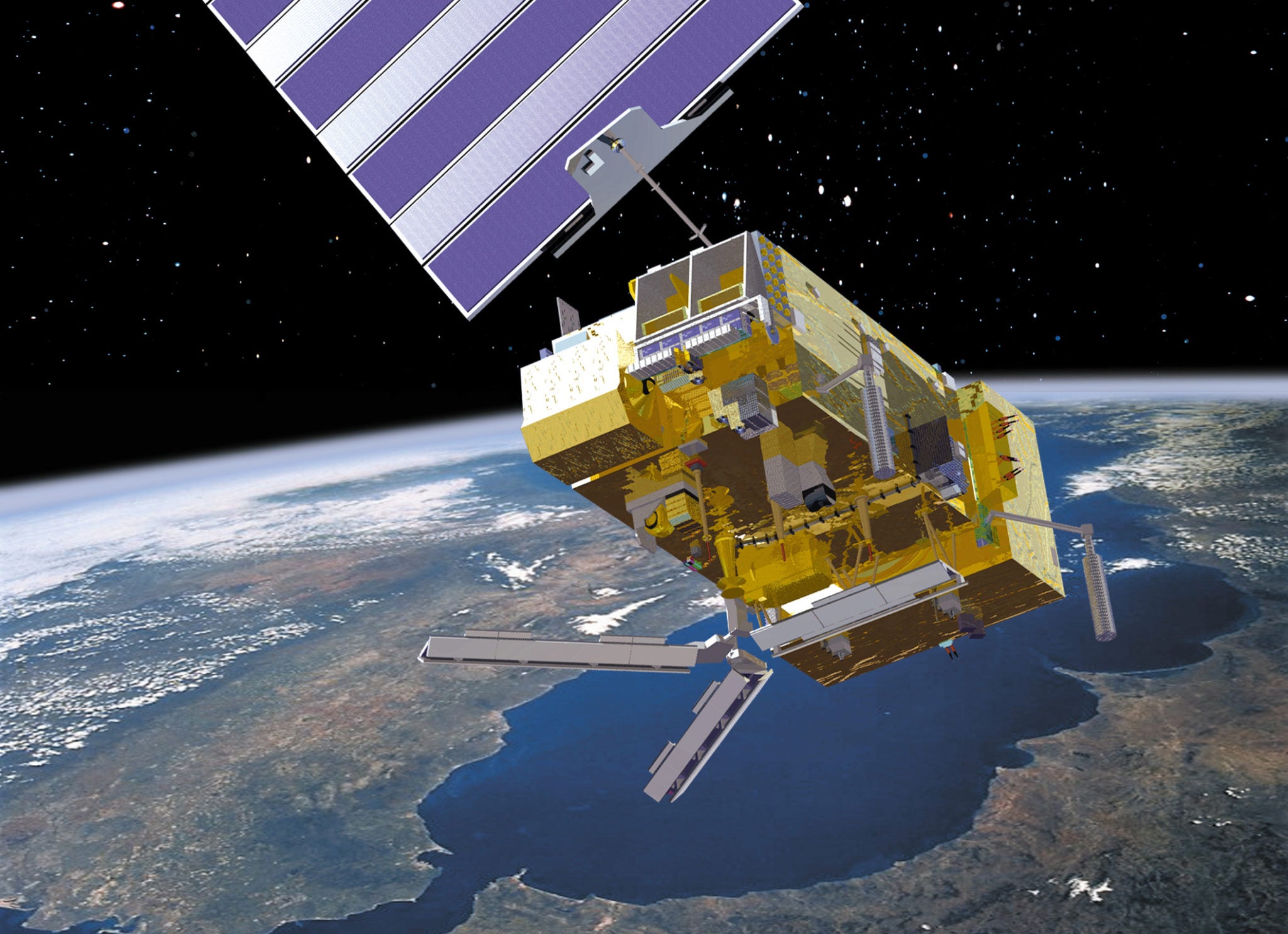Europe’s MetOp A Satellite Outlives Life Expectancy by Five Years
[Via Satellite 10-17-2016] Europe´s first polar orbiting weather satellite, MetOp A, has survived double its specified lifetime of five years, manufacturer Airbus Defence and Space announced today. Launched Oct. 19, 2006, the satellite will soon accomplish 10 years in space for the European Space Agency (ESA) and the European Organization for the Exploitation of Meteorological Satellites (EUMETSAT).
MetOp A has orbited Earth almost 52,000 times and delivered more than 100 terabytes of weather and climate data. Orbiting at approximately 830 kilometers the spacecraft was Europe’s first Low Earth Orbit (LEO) meteorological satellite. Now one of three identical spacecraft, MetOp A circles the planet sun-synchronously 14 times a day, flying much closer to the Earth than the geostationary Meteo-satellites placed 36,000 km above the equator. The satellite provides observations in finer detail over the full Earth, including high latitude regions critical for weather forecasts in Europe.
Since September 2012, MetOp A has operated in tandem with MetOp B, flying in the same orbit, half an orbit apart, to better observe rapid changes in the atmosphere. The duo collect data essential for accurate forecasts up to 12 days ahead. The third satellite, MetOp C, is scheduled for launch in 2018.
“By itself MetOp A contributes roughly 25 percent of all data gathered for meteorological purposes, and 38 percent of all satellite platforms. The MetOp fleet’s performance in measuring trace gases, and in the field of atmospheric chemistry, e.g. methane, sulfur dioxide, volcanic ash, has exceeded all expectations. Furthermore, climate and environmental monitoring benefits from the long-lasting program with three satellites designed to operate for more than two decades,” said Dieter Klaes, program scientist at EUMETSAT.
